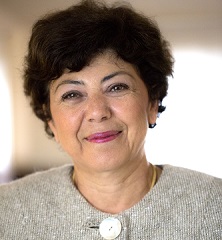You are here
Statement by Ms. Monique Barbut on World Migratory Bird Day 2018
Promoting sustainable land use unifies our voices for bird conservation
Birds are highly sensitive to their environments. With 30 percent of the land now degraded, the long journeys migratory birds fly every year across continents to find food, breeding and rearing grounds are becoming ever more dangerous and exhausting. As they lose the land resources that usually sustain them, migrating birds are increasingly forced to find new habitats. It is making their journeys longer, more tiresome and their survival and reproduction less secure. In short, land degradation poses an existential threat to migratory birds.
The commitment countries made in 2015 – under Sustainable Development Goal 15 – to achieve land degradation neutrality (LDN) by 2030, is a commitment that guarantees the future survival of migratory birds. By choosing land degradation neutrality, the countries agreed to avoid degrading any new land, to reduce the degradation of the lands currently in use and to reverse the process in the degraded areas.
To date, 116 countries that are Party to the United Nations Convention to Combat Desertification are setting in place the measures needed to avoid, reduce and reverse land degradation by 2030. Over half of these countries now have concrete targets to assess their progress towards meeting the LDN target. Of the latter, 40 countries are working on schemes to recover and transform degraded large areas and landscapes into healthy ecosystems - havens for migratory birds and for human wellbeing.
Encouraging land users all over the world to adopt sustainable land use and management practices is to unify our voices for bird conservation. Each commitment to land degradation neutrality is a vote to secure the feeding, breeding and rearing grounds for migratory birds.

 Ms. Monique Barbut
Ms. Monique Barbut